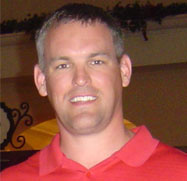
I separated from the Army in June 2000 out of Fort Bliss, Texas. During my transition, I explored all options made available to me by the Army, including the transition program, but I found little value in the services offered based on my civilian career goals. I began communication with Orion in early 2000 and accepted a position with one of its clients in my chosen field before my 20 days of terminal leave even began. I settled in Austin, Texas, shortly after leaving the Army.
My MOS on active duty was 66H-8A, Critical Care Registered Nurse, and my experience in the Army was invaluable as far as nursing experience goes. Upon leaving the military, however, I wanted to transition into Pharmaceutical or Medical Sales and found that I needed some assistance in preparing for, securing, and succeeding in interviews with prospective employers. At the time, Pharmaceutical and Medical Sales jobs were very difficult to get and just scheduling an interview could be quite challenging.
I turned to Orion and could not have asked for more from the services they offered. They prepared me for a hiring conference, where I had five interviews set up (all with Pharmaceutical and Medical companies), and helped me understand how to communicate the ways in which the skills I learned as a nurse and an Army officer would benefit potential employers. They also helped me research each company I would visit with, both for my own information and so that I could speak intelligently about the company during my interview. Within a week of my hiring conference, I had two job offers and accepted a position with Eli Lilly and Company as a Sales Representative in Austin.
Being hired so quickly and having employment waiting for me ended up making much of my transition very easy. My new employer provided relocation assistance, and our move to Austin went very smoothly. The most difficult part of my transition, though, was simply not living the Army lifestyle anymore. Adjusting to not being an Army officer took some getting used to. I believe I got used to how military organizations run, and it took some time to realize that I had to adjust my way of thinking in order to acclimate to my new corporate environment.
For example, the Army tends to keep things pretty black and white. Orders are made clear, and it is very important that every person on a team understands their role in the mission in order to accomplish it quickly and without error. In civilian/corporate life, there tends to be a lot more open interpretation of goals and missions within an organization. By my standards, this resulted in lost efficiency and potentially wasted time. This proved frustrating to me early on in my career.
I celebrated my 14-year anniversary with Lilly in August 2014! My career progression began in Austin with a Sales Representative position, which I held for a little more than three years. In that time, I was promoted to Senior Sales Representative as a result of above average sales results and consistent leadership within my district.
In May 2004, I was promoted to an associate role in our corporate office in Indianapolis, Indiana, and spent two years there as a Sales Training Associate. Following that position, I was promoted again to a District Sales Manager position in Tyler, Texas, where I supervised ten sales representatives all over East Texas. In August 2009, I made the decision to return to Austin and an Executive Sales Representative role in order to spend more time with my family and explore other outside interests. Doing so paid off, as I am now a father of two and a three - time Ironman triathlon finisher.
The best advice I can give to our transitioning military is to get any assistance you can, be patient, and have a lot of confidence in the value you can provide to future employers as a veteran. Whether you were enlisted or an officer, the experiences and training you have received will prove extremely valuable to civilian companies. The best soldiers are able to lead and motivate those around them, and I have yet to come across an executive that isn't looking for the future leaders of his/her company.
Be confident in your abilities to lead, organize, implement, and assess. Highlight these skills and the opportunities you have had to develop them on your resume and during job interviews. Finally, work on your oral and written communication skills. Civilian employers are looking for candidates that can express themselves clearly and concisely in a manner that will motivate others. If you pair an above average ability to communicate with a well-thought out explanation of your military experience and skill sets, you will undoubtedly stand out from all other applicants.
Finally, to employers-if you are wondering whether or not to hire veterans, read the paragraph above! That advice is not me telling our veterans to polish up and make ordinary experiences sound extraordinary. That advice is me telling our veterans to capitalize on the values, work ethic, leadership abilities, and sense of duty that they have developed during their time serving our country. Take a close look at our veterans. The future leaders of your company are likely among them.















